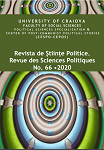Emotional Intelligence as a Type of Cognitive Ability
Emotional Intelligence as a Type of Cognitive Ability
Author(s): Adrian-Florin BușuSubject(s): Education, Educational Psychology, Cognitive Psychology
Published by: Editura Universitaria Craiova
Keywords: education; Emotional Intelligence; interaction; skill; practice;
Summary/Abstract: Defined as the capability of individuals to recognize their own emotions and those of others, Emotional Intelligence first became popular thanks to Daniel Goleman’s Emotional Intelligence (1995). Up until then, the term “Intelligence” was equated with a high Intelligence Quotient, or IQ. Goleman’s research theorized that humans are made up of different kinds of intelligences and claimed that Emotional Intelligence was just as important as Intelligence Quotient, in creating functional well-balanced people. Students with high Emotional Intelligence abilities tend to be more agreeable, open to new ideas and conscientious. They are more likely to be mentally and physically healthier, create less interpersonal drama and function more effectively than students with low EI. Studies indicate that Emotional Intelligence can be inherited or partly learned in early life. However, students can improve their EI skills by tuning into their own feelings, learning about how they function and how to manage them. Early education is essential, as emotions are crucial to effective thoughts, helping students to make wise decisions and allowing them to think clearly. A student with a low EI has poor impulse control and may feel agitated, troubled and anxious. This type of student is at risk for academic failure or relational problems. In order to avoid such an outcome, students should learn how to master mindfulness practices, that is moment-bymoment awareness of thoughts, feelings, bodily sensations and surrounding environment, characterized by what is called “acceptance”. Cooperative learning is another way of EI development, as it offers students plenty of practice in the benefits and the challenges of working with others. Taking turns, having different opinions, different goals, different personalities, all require lots of practice in cooperation, but positively correlate with good social interactions and negatively correlate with deviance from social norms or anti-social behavior, measured both in and out of school, as reported by students, their own family members or teachers.
Journal: Revista de Științe Politice. Revue des Sciences Politiques
- Issue Year: 2020
- Issue No: 66
- Page Range: 204-215
- Page Count: 12
- Language: English

